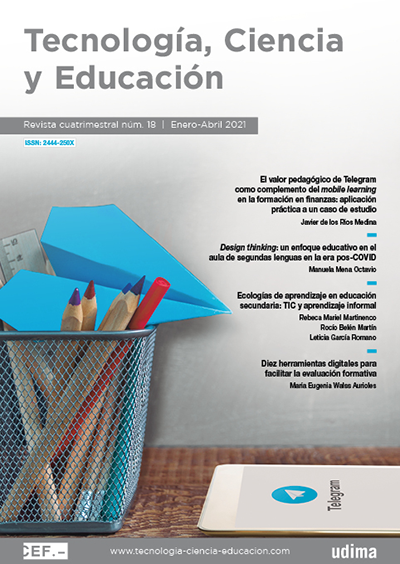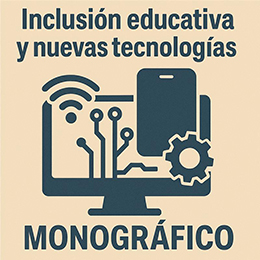Ten digital tools to promote formative assessment
DOI:
https://doi.org/10.51302/tce.2021.575Keywords:
formative evaluation, feedback, education, digital tools, learning analyticsAbstract
This article suggests 10 digital tools that encourage teachers to exploit their creativity to design formative assessment activities. For an assessment to fulfill a formative function it must provide the students with information that empower them to make decisions and adjustments in their learning process. Technology enables embedding evaluation during instruction and simplifies feedback, automatizing activities that otherwise are time-consuming for teachers. The selected tools allow the development of a great variety of assignments that promote self-evaluation, cooperation and feedback. The review recommends free or low-cost technology, that support learning management system integration and adaptable to all learning levels.
Downloads
References
Alcalá, D. H., Pueyo, Á. P. y Calvo, G. G. (2019). Pero… ¿A qué nos referimos realmente con la evaluación formativa y compartida?: confusiones habituales y reflexiones prácticas. Revista Iberoamericana de Evaluación Educativa, 12(1), 13-27.
Cosi, S., Voltas, N., Lázaro-Cantabrana, J. L., Morales, P., Calvo, M., Molina, S. y Quiroga, M. Á. (2020). Formative assessment at university through digital technology tools. Profesorado. Revista de Currículum y Formación del Profesorado, 24(1),164-183. https://doi.org/10.30827/profesorado.v24i1.9314.
Díaz, F. y Hernández, G. (2002). Estrategias docentes para un aprendizaje significativo: una interpretación constructivista. Vol. 2. (2.ª ed.). McGraw-Hill
Frade, L. (2011). Elaboración de rúbricas: metacognición y aprendizajes. (3.ª ed.). Medición de Calidad SA de CV.
García-Jiménez, E. (2015). La evaluación del aprendizaje: de la retroalimentación a la autorregulación. El papel de las tecnologías. RELIEVE. Revista Electrónica de Investigación y Evaluación Educativa, 21(2), 1-24.
Hattie, J. y Timperley, H. (2007). The power of feedback. Review of Educational Research, 77(1), 81-112.
Nicol, D. J. y Macfarlane-Dick, D. (2006). Formative assessment and self-regulating learning: a model and seven principles of good feed-back practice. Studies in Higher Education, 31(2), 199-218.
Ravela, P., Picaroni, B. y Loureiro, G. (2017). ¿Cómo mejorar la evaluación en el aula?: reflexiones y propuestas de trabajo para docentes. Instituto Nacional para la Evaluación de la Educación.
Scriven, M. (1967). The methodology of evaluation. Social Science Education Consortium Publication 110.
Wiliam, D. (30 de julio-6 de agosto de 2000). Integrating formative and summative functions of assessment. [Ponencia]. The 9th Educational Congress on Mathematical Education. Tokio, Japón.
Downloads
Published
How to Cite
Issue
Section
License
Copyright (c) 2021 María Eugenia Walss Aurioles

This work is licensed under a Creative Commons Attribution-NonCommercial-NoDerivatives 4.0 International License.



























